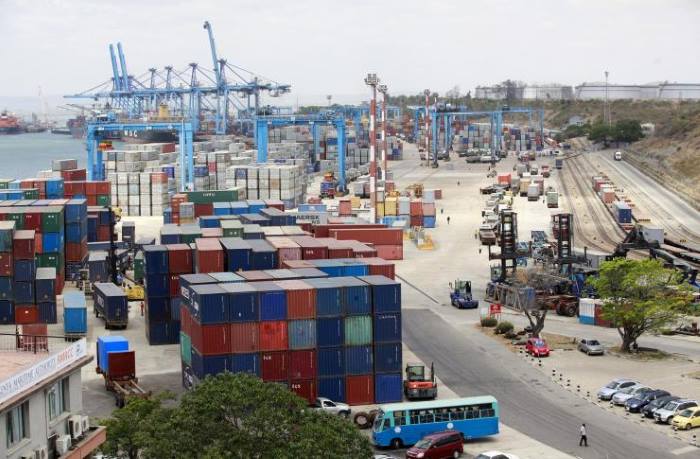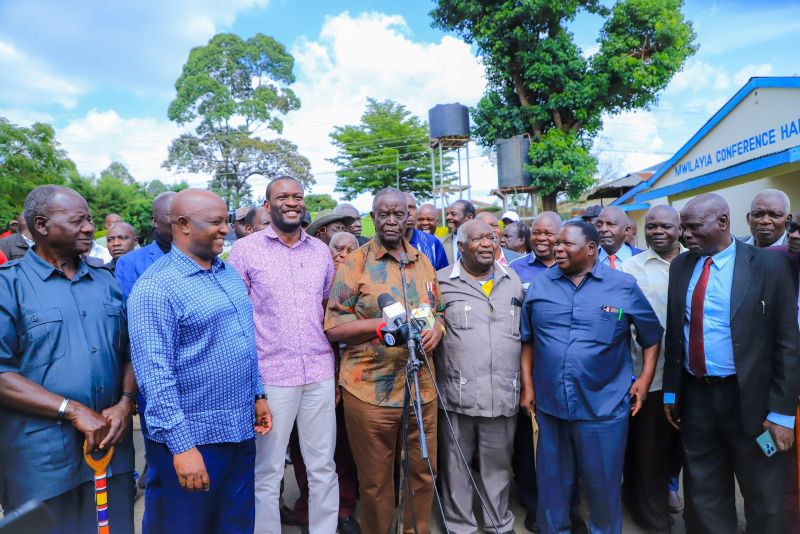Cargo clearance relocation by KRA fuels discontent among traders amid delays, increased charges

Despite KRA officials asserting that the relocation aims to curb tax fraud, the move has led to significant delays and rising storage costs for consignment clearance.
The Kenya Revenue Authority (KRA) has relocated its cargo clearance operations from Mombasa Port and 22 customs bond warehouses to its own offices.
Despite KRA officials asserting that the relocation aims to curb tax fraud, the move has led to significant delays and rising storage costs for consignment clearance.
More To Read
- Weak taxation of wealthy costs Kenya Sh130 billion annually, report finds
- Ex-Nairobi governor Sonko gets relief as Tribunal directs KRA to unfreeze his bank accounts
- KRA sets December 31 deadline for fuel stations to adopt eTIMS invoicing system
- Businesses granted 30-day relief on long-stay container charges at Mombasa port
- Meta to deduct 5 per cent tax on Kenyan creators’ earnings in 2026
- National Treasury says weak revenue, high debt repayments straining Kenya’s budget
The new procedure now requires clearing and forwarding agents to submit a two-page form for verification at various KRA offices. Previously, documents would be approved and signed directly at the port and depots.
The shift has led to complaints from traders and agents who argue that they are experiencing extended clearance times.
The Kenya International Freight and Warehousing Association (KIFWA) noted that the KRA's new work arrangement has increased the number of days of clearing consignments from one to more than five.
"The new policy, which has been introduced in what KRA is saying to eliminate collusion with its staff, has caused delays and made it cumbersome to clear cargo. The tax man has introduced a two-page form which is sent to offices not knowing who will handle it thus causing delays in clearing cargo," KIFWA chairman Roy Mwanthi said.
Decision-making
Speaking after the agents meeting with KRA officials at Mombasa KRA offices on Saturday, Mwanthi urged the government to reconsider the directive, noting that all stakeholders should have been involved in the decision-making process.
"To introduce such a directive all stakeholders should have been involved but this was just endorsed to agents this week without even a notice. We have met KRA officials but their hands are tied and they have escalated the matter to headquarters," Mwanthi said.
Mombasa KIFWA chairman Leonard Njiru said the government should use technology to resolve any customs issue rather than increasing tariffs and barriers.
"We understand KRA has its integrity issues with their staff but that should not affect businesses instead they should reduce business frustrations," Njiru said.
In its part, KRA defended the shift as a measure to combat tax evasion and corruption. They announced that the new process includes the centralised Integrated Customs Management System (iCMS) and Kilindini Waterfront Automated Terminal Operations Systems (KWATOS).
The iCMS, replacing the outdated Simba system, aims to address revenue leaks and clearance delays, while KWATOS will enhance terminal operations for both container and conventional cargo.
This means that no cargo will be cleared if not logged in the iCMS and KWATOS at acceptance time.
Additionally, the Kenya Ports Authority (KPA) has implemented a 24-hour cut-off time for fresh produce exports and requires all involved government agencies and exporters to operate continuously.
The government has also addressed business bottlenecks by reducing weighbridges for transit and introducing pre-arrival clearance to streamline the export process.
Top Stories Today















































